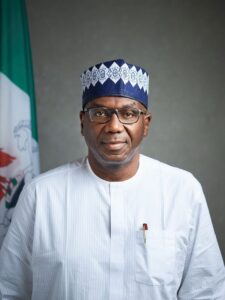
Balanced Diet Out Of Reach For Average Nigerians As Food Inflation Bites
The rising cost of food in Nigeria is a pressing issue, and the latest numbers from the National Bureau of Statistics (NBS) paint a grim picture . As of August 2024, the average daily cost of a healthy diet in Nigeria reached N1,255 per adult, which is a 28% increase since March 2024. This surge in food prices has made it challenging for many Nigerians to access a balanced diet.
The NBS reports that food inflation in Nigeria has reached 32.15%, with the cost of healthy diet increasing by 0.8% in August compared to July . The food groups that have driven this increase are legumes, nuts and seeds, starchy staples, and vegetables .
The situation is even more dire for certain regions, with the South-West, South-South, Ogun, Lagos, and Rivers recording the highest costs of healthy diet . On the other hand, Katsina, Kaduna, and Sokoto have recorded the lowest costs .
This crisis is not just a matter of numbers; it has real-life implications for Nigerians. The high cost of food is putting a strain on households, making it difficult for people to access basic necessities like food . Experts warn that corporations are exploiting the situation to increase prices arbitrarily, making things even harder for the average Nigerian .
The UN’s Food and Agriculture Organization (FAO) has also warned that 26.5 million Nigerians may face a food crisis between June and August . The International Monetary Fund (IMF) has highlighted that limited reforms, security challenges, weak growth, and high inflation have worsened poverty and food insecurity in Nigeria .
To address this issue, experts recommend increasing agricultural productivity, improving rural infrastructure, and enhancing agricultural investment . Additionally, regulating corporate practices and ensuring transparency in pricing can help protect consumers .
The Nigerian government has taken some steps to address the issue, including tightening monetary policy and raising the Monetary Policy Rate (MPR) . However, more needs to be done to address the root causes of this crisis and ensure that all Nigerians have access to a balanced diet.





